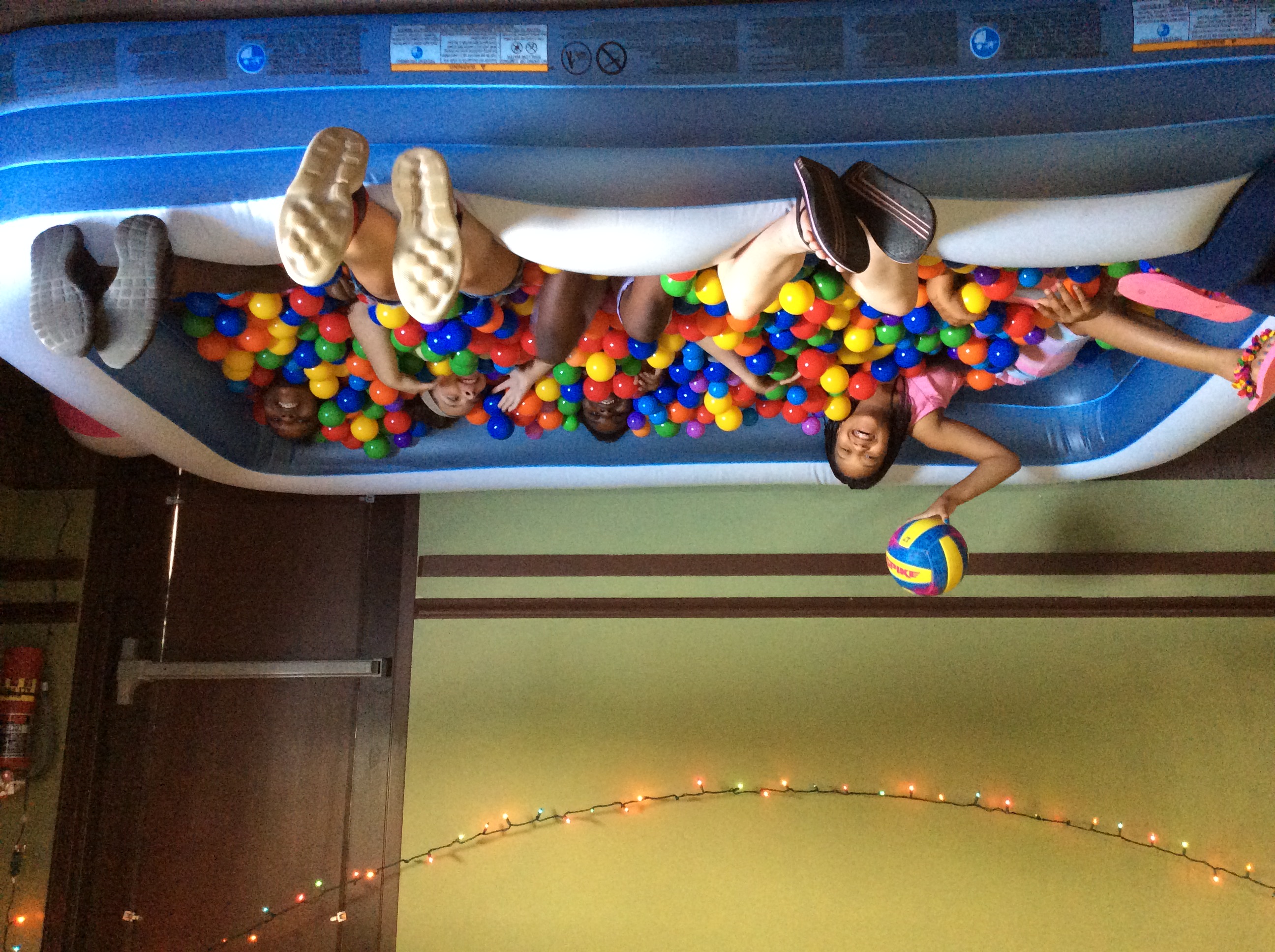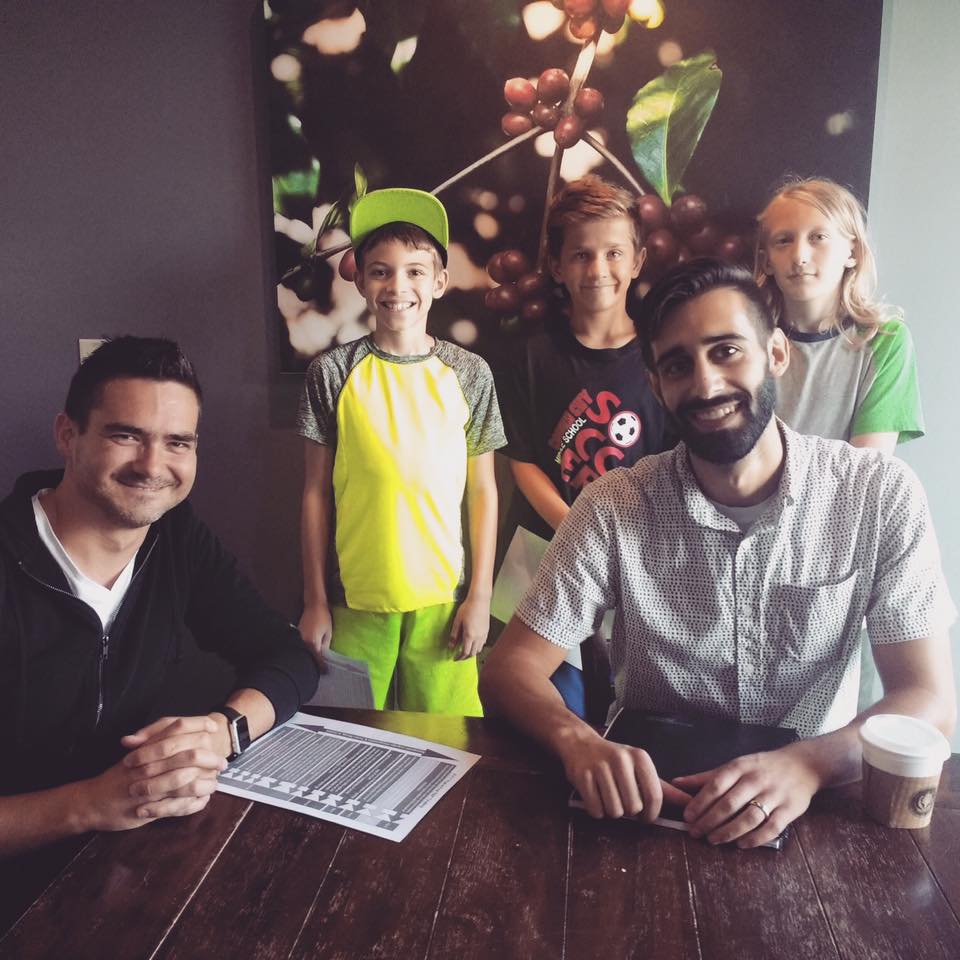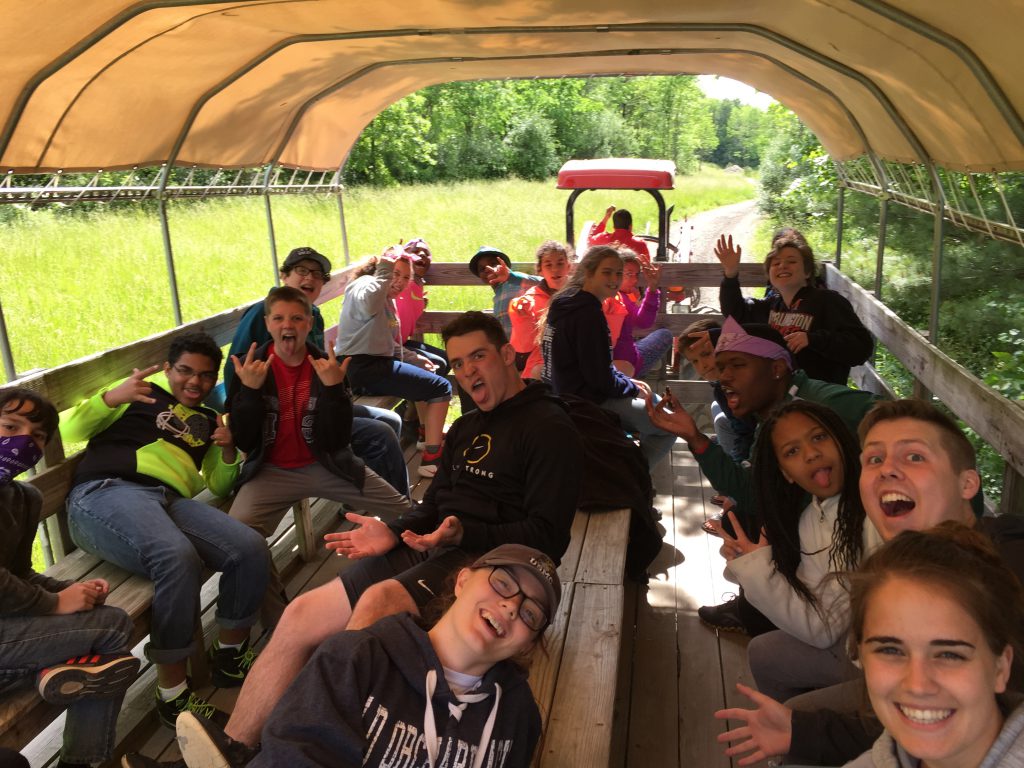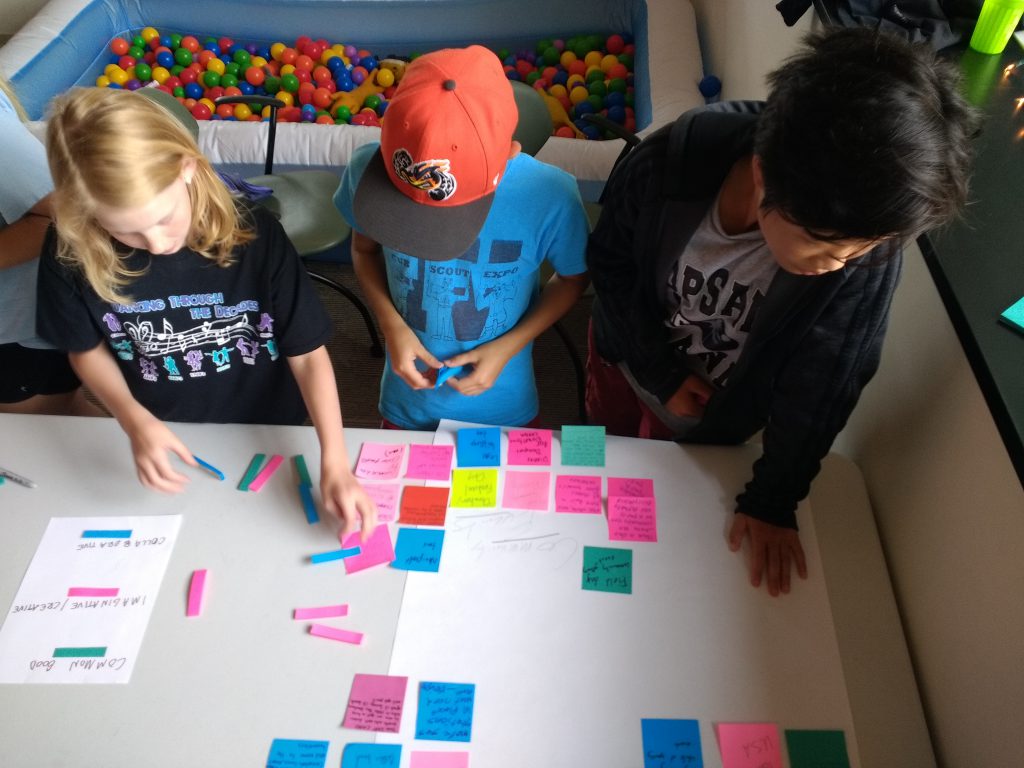
TomTod Ideas Helping Kids Realize Dreams
Joel Daniel Harris doesn’t call himself the CEO of TomTod Ideas, rather he calls himself “Executive Dreamer,” because that’s what TomTod Ideas is all about: believing in dreams as the seeds of tomorrow’s progress. Harris believes that middle-schoolers have the capacity to have big ideas. They just need a little help in executing them: in making them happen. At Kars4Kids we still remember what it’s like to be a kid with big dreams, and so we were excited to help make some of those dreams happen by awarding TomTod Ideas a small grant. We spoke with Joel Daniel Harris to learn more:
Kars4Kids: The TomTod Ideas website states that TomTod Ideas is short for “Tomorrow’s ideas today.” Can you give us some examples of ideas that What If You Could program participants have imagined and executed under the tutelage of their mentors?
Joel Daniel Harris: Students have taken action on all sorts of exciting ideas, from ones that impact the communities they live in, to ideas that ripple around the globe. One of our most well-known ideas in Stark County is the creation of a bikeshare program that uses existing infrastructure (libraries and park trail hubs) to provide alternative transportation for free. While most community bikeshares require some sort of payment, BikeSmart is a free program managed and executed by a unique partnership of the Stark County District Library, Canton Parks and Recreation, Stark Parks, and the Stark Area Regional Transit Authority. Gabby, Alexis, and Devin, the students that originally came up with the idea, were a part of our Camp What If program and pitched it at the end of the week to community leaders who put it into motion.
Another example of an idea currently in motion is Refugee Connect. Rowyn came to our Camp What If: Wilds overnight camp last summer and was challenged to wrestle with the international refugee crisis. As a result of what he learned, he’s now working with a mentor and peer team to create Refugee Connect, an online resource for refugees who are resettling in NE Ohio, providing them access to culturally-connected resources and helping them to discover the resources that are present in their new home communities.

Kars4Kids: Does a child have to submit an idea to be accepted to the What If You Could program?
Joel Daniel Harris: Our What If You Could program is our most open-ended program, as our goal is to come alongside students and help them take action on the ideas that they create. With that being the starting point, putting an idea into action can take anywhere from six months to two plus years, depending on a variety of factors. Over the years we have had open application windows where any middle school student can apply as well as have had students that were part of either our Camp What If or What If 101 programs that came up with an idea and we worked with them to continue their idea outside of those settings.
Kars4Kids: Your What If 101 program is run in conjunction with local schools. Who designs the projects and project goals?
Joel Daniel Harris: When schools invite us in to be part of their programming, they have several options of programming focus to choose from. This year, those options include the environment, public art, social enterprise, local history, media literacy, and community-focused problem-solving. Each classroom teacher chooses the curriculum focus and works with our Chief Adventure Curator to tailor the theme to that particular class, but the curriculum itself is student-driven when it comes to specific projects and goals.

Kars4Kids: The What If You Could program and your various camp programs run on a 1:4 ratio of staff to participants. Does this mean you accomplish more in these programs than you do in your What If 101 program, which involves whole classrooms?
Joel Daniel Harris: It depends what you think of as “more”! Because we have a concentrated and focused chunk of time with students at camp, yes, we do see more immediate mind-shift, and most of our recent What If You Could projects have come directly out of camp. However, we reach a greater number of students through 101, and expose them to general problem-solving, ideating and creative skills that impact their everyday lives and learning. Additionally, our work in the classroom is purposefully designed to augment the rest of their in-school curriculum, so that they can readily make connections between our material and the core curriculum they’re also engaged in. We see all three of our programs as complimentary, each offering different angles to the same core concepts we help students engage in: how to put empathy and imagination into action for the good of their communities.
Kars4Kids: You seem to have an affinity for middle school kids. What makes middle-schoolers so awesome?
Joel Daniel Harris: We focus specifically on middle school students for two main reasons. First, middle school students are at a unique point in their social, emotional and cognitive development. They still have vibrant imaginations, but are also developing real-world problem-solving skills and noticing new things about how the world works. This combination of traits allows them to dream up ideas and solutions in ways children younger than them can’t yet, and children older than them might talk themselves out of. But because middle schoolers are in such a unique place [some might call it awkward], they often get a bad rap.
There are scores of organizations who work with just elementary and high school students, or who lump middle schoolers in with students older or younger than them. We see the potential our students have to dream big, and don’t want them to be skipped over or told they have to wait until they’re older to have a voice or start making a difference. TomTod will always and forever be the champion of this extraordinary time in students’ lives.

Kars4Kids: What is it you want the kids who participate in the various TomTod Ideas programs to take away from the experience?
Joel Daniel Harris: Our hope is for our students to enter high school with a sense of self-efficacy when they see problems in the world around them and to feel confident in thinking creatively and using their imagination. We also want them to know that they can take real action right now and don’t have to wait until some nebulous day in the future to make a difference. Their ideas matter and we need their input to shape our world today!
Kars4Kids: Is it awkward getting into political issues with children? Are mentors trained not to allow their partisan interests to intrude in the work they do with the kids?
Joel Daniel Harris: We don’t view the issues we face with our students as innately political. We deal with factual problems in the community and world, which sometimes have become politicized in an attempt to solve them. Politics don’t enter into our discussions with students; we ask them what they think and why, but refrain from sharing political opinions. We also try to engage a broad array of perspectives to share with students and work with them in learning how to think critically of sources and information.
Kars4Kids: Which What If camp program is most popular? Do kids ever have to settle for a second choice camp program due to lack of space?
Joel Daniel Harris: That would be a great problem to have! In 2017, the first year we offered more than one style of camp, What If: Wilds was the most popular but still had room available. This summer we have four camps to choose from (more info at www.tomtodideas.org/camp)
Kars4Kids: One of the ideas you offer to your What If 101 classrooms is “What You See CAN be What You Get” which is about the impact of visual art on a community. Does graffiti get a mention? What about those in the community who are vision impaired? Are their needs imagined and discussed?
Joel Daniel Harris: Graffiti is an artistic expression that has consistently been a point of interest with students as we have discussions in What If 101 and Camp What If. Our students have created some great ideas of ways to engage a variety of ways to engage the arts from a myriad of perspectives and we’re definitely interested in exploring ideas with them that reach a variety of audiences. We’re always looking for new and interesting ways to expand ideas and take them in different directions than first imagined so that we can truly enhance the common good for everyone!
Kars4Kids: What’s next for TomTod Ideas?
Joel Daniel Harris: Most immediately we’re excited to be expanding our summer schedule with a 1-day camp and 3 overnight camps this summer, including weeks on community exploration and development; understanding the interaction of the Lake Erie watershed with the surrounding communities; and exploring startups & tech hubs across NE Ohio through a unique traveling camp. All of our camp info is available at www.tomtodideas.org/camp
We also have some other very exciting ideas that are currently in percolation. Hopefully we can share these in future conversations!